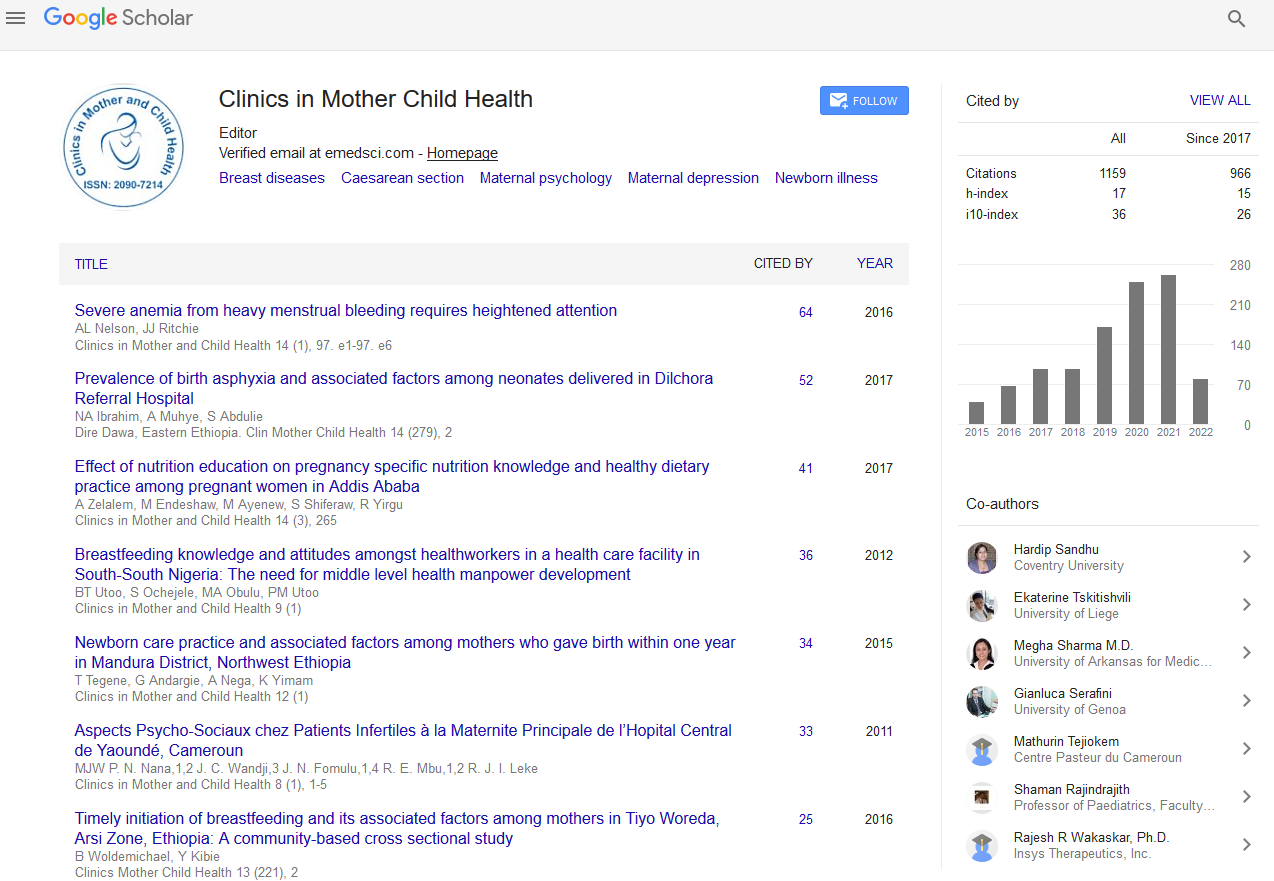Indexed In
- Genamics JournalSeek
- RefSeek
- Hamdard University
- EBSCO A-Z
- Publons
- Geneva Foundation for Medical Education and Research
- Euro Pub
- Google Scholar
Useful Links
Share This Page
Journal Flyer

Open Access Journals
- Agri and Aquaculture
- Biochemistry
- Bioinformatics & Systems Biology
- Business & Management
- Chemistry
- Clinical Sciences
- Engineering
- Food & Nutrition
- General Science
- Genetics & Molecular Biology
- Immunology & Microbiology
- Medical Sciences
- Neuroscience & Psychology
- Nursing & Health Care
- Pharmaceutical Sciences
Abstract
Prevalence of Exclusive Breastfeeding and its Predictors among Mothers in Micheweni, Chake-Chake and North ‘A’ districts, Zanzibar
Ahmed Gharib Khamis, Ali Mohammed Omar, Suleiman Atik Suleiman and Fatma Saidi Ali
Objective: Generally, child’s feeding practices especially exclusive breastfeeding (EBF) is affected by individual, social, cultural, and health services related factors. Planning, implementation and evaluation of programs to promote Infant and Young child’s Feeding (IYCF) require detailed current information about these factors. This study aimed to estimate the prevalence of EBF and identify factors that predicted EBF among mothers in Micheweni, Chake-Chake, and North ‘A’ districts in Zanzibar.
Methods: This is a community based cross-sectional study conducted among 303 mother-infant pairs aged up to 6 months. Standardised questionnaire was used to record infant’s characteristics including age, gender, and place of delivery. Mothers were interviewed about their current breastfeeding practices, their knowledge regarding breastfeeding and support they obtained from husband, grandmothers and other family members. Both univariate and multivariate analysis were used to identify prevalence and predictors to EBF.
Results: The prevalence of EBF in this study was found to be at 20.8% (n=63). Mother’s knowledge was good regarding some breastfeeding practices, however; many of them didn’t practice EBF. After multiple logistic regressions, variables that predicted EBF were: current age of mother, number of children under five, time when a mother is away from her child, place of delivery, support from madrassa and health centres, and knowledge about breastfeeding. The odds of mothers to EBF their babies were found to be significantly higher for: young mothers aged 21-25 years (AOR=7.4; 95% CI, 1.76-31.9), children who were born at the hospital (AOR=2.66; 95% CI; 1.37-5.17), and mothers who were strongly supported from community classes or madrassa (AOR=10.6; 95% CI, 2.8-39.75).
Conclusion: Although majority of mothers have shown a good understanding on the importance of breastfeeding, the prevalence of EBF was still low. Factors affecting EBF are multifaceted; thus, government through its ministries should intensify EBF promotions for reduction of childhood malnutrition.


